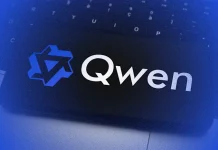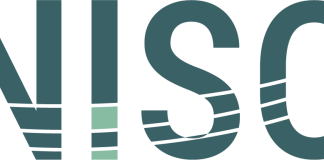The Director-General of the Nigerian Maritime Administration and Safety Agency (NIMASA), Dr. Dakuku Peterside, has said that the Agency had already keyed into the vision of President Muhammadu Buhari by creating over 7,000 jobs in the last six months through the New Cabotage Compliance Strategy and is set to do more, as there are vast opportunities in the maritime sector.
Dakuku stated this yesterday in Lagos while speaking with journalists on the activities of NIMASA.
He said the agency had come up with strategies that had ensured a steady rise in the number of jobs created through manning, crewing, stevedoring, and dockworkers engagement.
This, he said, has positioned the maritime industry as one of the key sectors that will support the realisation of President Buhari’s pronouncement during his Democracy Day broadcast of bringing 100 million Nigerians out of poverty in 10 years, as maritime possesses a vast opportunity for our economic growth.
According to the NIMASA DG, the implementation of a five-year plan for the cessation of waiver has encouraged the employment of more Nigerians by vessel owners. He said the effect of the new Cabotage regime was still yielding positive results, as more Nigerians are set to be engaged in various sub-sectors of the maritime industry due to the discouragement of the dominance of the sector by foreigners.
“We have always known that the political will to deal with the issue of waivers in the Cabotage regime had been the challenge in the past. Our pronouncement and implementation of the New Cabotage Compliance Strategy has led to the engagement of over 7,000 Nigerians in various sub-sectors within the industry. This has also resulted in 32 per cent increase in vessels operating under the Cabotage regime in the first two quarters of 2019,” he said.
Detailing the achievements of NIMASA, Dakuku said that the agency had inspected and surveyed over 600 vessels calling at Nigerian ports, an unprecedented feat, which he said showed that Nigeria was alive to its port state and flag state responsibilities.
He said the increased inspection and survey had ensured that sub-standard vessels no longer call at Nigerian ports, which has also improved safety on Nigerian waters.
The DG also pointed out that in line with the Ease of Doing Business initiative of the President Buhari’s administration, it now takes less than 24 hours to issue sailing clearance to vessels that call at Nigerian ports, from about seven days at the time the current management of NIMASA came on board. He noted that this had greatly improved vessel turn-around time and made Nigerian ports more attractive.
Dakuku said the agency was taking strategic steps to deal with the issue of piracy, disclosing that the Anti-piracy bill sponsored by NIMASA has been passed by the National Assembly, adding that as soon as it gets the required executive assent, it will help tame the piracy monster and open up more opportunities in the sector.
He stated that though the steps taken were challenging, the agency was committed to ensuring a safe and secure maritime environment to promote participation in maritime business.
He said, “The issue of maritime crime has been challenging, not only to us as a nation but also the entire Gulf of Guinea. To achieve the objective of a safe and secure maritime environment that will guarantee the realisation of the president’s pronouncement, commitment is critical and we at NIMASA have decided to take the challenge head-on with the various strategies formulated at the agency’s level to drive the process.”
To this, he noted that the world will be coming to Nigeria in October to brainstorm on ways of collectively tackling the menace of maritime insecurity.
This is with a view to advance the growth and development of the sector to the benefit of the country and Africa at large, with NIMASA championing the initiative.
Dakuku equally charged the local media to be sensitive to issues of national interest and push out facts that will help position the country properly before the world, and cross-check what goes out to the public domain.
This, he said, is because the Nigerian media, as the third estate of the realm, is an enabler that foreign and local mediums rely on for information on Nigeria, which shapes their decisions on international politics and economic investments with regard to the country.
He argued that their further exposure of the vast economic opportunities in Nigeria, both in the maritime sector and the entire economic spectrum, will help support Government’s efforts to attract investments to develop the country.
Source: THISDAY












